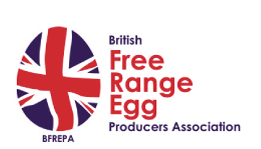The UK May 19 wheat futures took a downward turn last week, with May futures ending the week at £166.65.
The May (old crop) to November (new crop) spread is still high at just over £15. How and when (or indeed if) this large difference will come together is becoming a challenging question for the trade to consider.
European wheat markets were down more significantly than UK markets adding a downward pressure into the UK. This pressure is in part due to lower Black Sea prices comparable to those seen in mid-January due to a weakening Russian Ruble. The Ruble is down against the US $ on talks of sanctions on Russia by the US government. Brexit continues to be a key driver of currency and markets in general. Despite a general theme in news reports that a `no deal’ is increasingly less likely, concern and uncertainty grow as the deadline approaches. Employment growth is at its weakest since 2012 and business investment is at its lowest since 2013.
On the global view, the trade continues to be held back by on-going political uncertainty. They are growing tired of speculation dressed up as `news’ only to be changed or replaced within days, especially regarding the US/China trade deal. The US wheat market reached new contract lows as more short positions being taken, which was not helped by reports that the French President had declared that France is opposed to a US-EU deal on trade for agricultural products. A noted change in the most recent USDA figures was that wheat and maize sales were both unchanged from last year. The US export sales report was more positive than expected. Export commitments increased in the 6 weeks from Jan 3rd by 3.6 Mln T indicating some demand has at last passed to the US market.
There is an increased expectation that China will agree a deal and make trades with the US to demonstrate that good will has created some optimism and lifted the Soya bean price at the end of the week. In exchange, it is expected that the US will remove tariffs on imports from China. However, as time continues to pass, it is more likely that China has all the soya beans it requires, so any rally may be short lived so that any purchases will only be for the new crop. There are concerns that a downturn in the overall world economy, especially in Europe and China, and the picture could still go in either direction.
Humpty Dumpty we all know he is an egg don’t we?
The rhyme does not state he is an egg as the poem is originally a riddle. There are many theories of an original "Humpty Dumpty" So let us hear a few.
A theory from 1930 suggests Humpty Dumpty is King Richard III of England, depicted as humpbacked in Tudor histories and particularly in Shakespeare's play. He was defeated, despite his armies, at Bosworth Field in 1485.
Another theory from 1842 suggested the rhyme was a metaphor for the downfall of Cardinal Wolsey, who like Humpty Dumpty was not buried in his shell. Professor David Daube suggested in The Oxford Magazine in 1956 that Humpty Dumpty was a "tortoise" siege engine, an armoured frame, used unsuccessfully to approach the walls of the Parliamentary held city of Gloucester in 1643 in the English Civil War. This was on the basis of accounts of the attack, but with no evidence that the rhyme was connected.
The Colchester tourist board attributed the origin to a cannon recorded as used from the church of St Mary-at-the-Wall in the siege of 1648. Colchester was a walled town with a castle and several churches protected by the city wall. The story given was that a large cannon locally known as Humpty Dumpty, was strategically placed on the wall. A shot from another cannon succeeded in damaging the wall beneath Humpty Dumpty which caused the cannon to fall. The Royalists tried to raise Humpty Dumpty on to another part of the wall, but the cannon was so heavy that "All the King's horses and all the King's men couldn't put Humpty together again".
Do you know any more? Why not let us know?
Brought to you by Paul Poornan, Melanie Blake and Martin Humphrey.




















